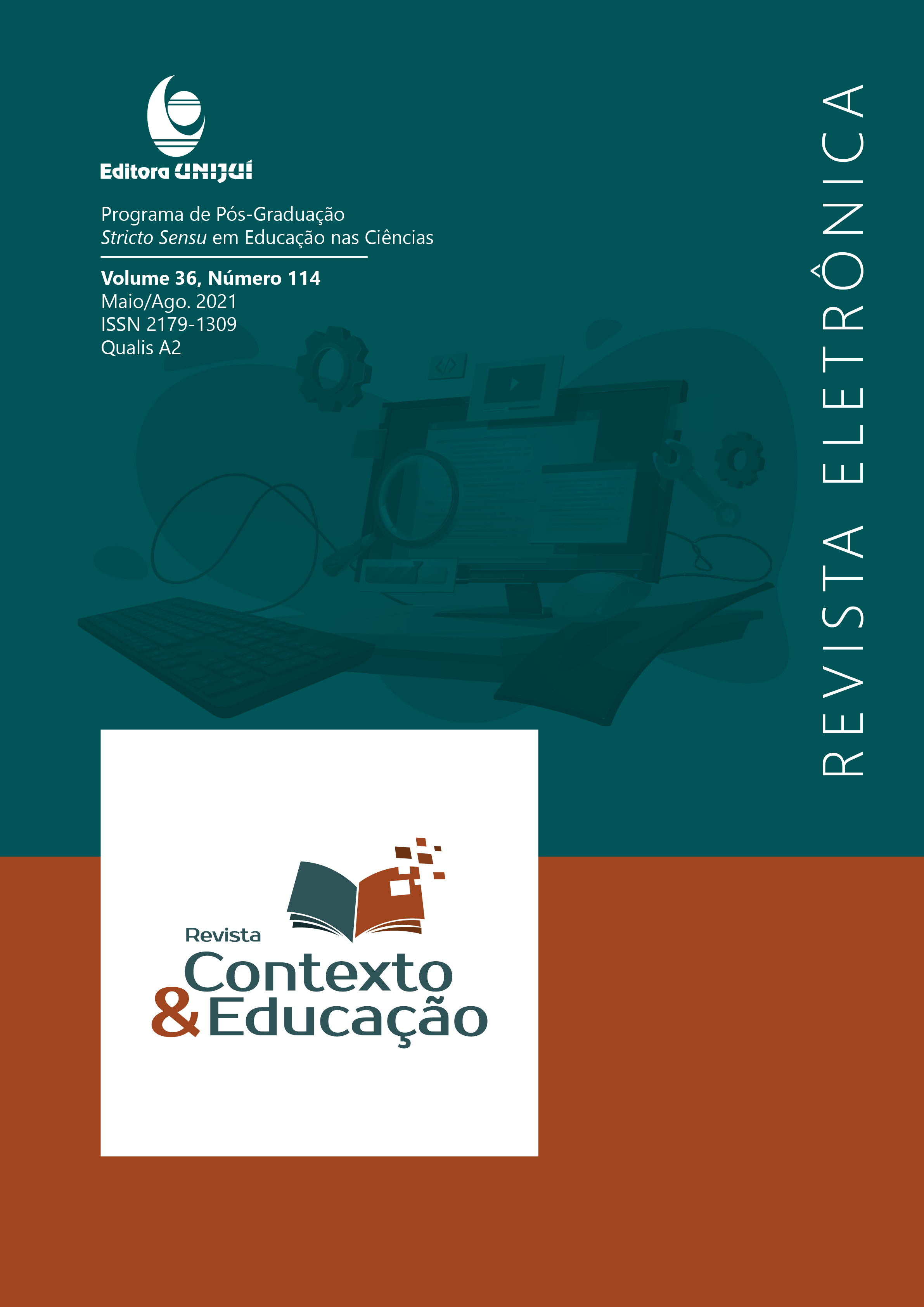PENSAMENTO COMPUTACIONAL NA FORMAÇÃO INICIAL DE PROFESSORES DE MATEMÁTICA: UM ESTUDO DE CASO SOB A PERSPECTIVA DA TEORIA DE ROBBIE CASE
COMPUTATIONAL THINKING IN THE INITIAL TRAINING OF MATHEMATICS TEACHERS: A CASE STUDY FROM THE PERSPECTIVE OF ROBBIE CASE´S THEORY
DOI:
https://doi.org/10.21527/2179-1309.2021.114.179-200Keywords:
Computação, Ensino, Padrões e Regularidades, Pensamento AlgébricoAbstract
O Pensamento Computacional tem sido inserido no ensino como um componente curricular específico da Computação ou em conjunto a outros componentes curriculares. Há necessidade de desenvolver as habilidades do Pensamento Computacional nos estudantes e, consequentemente, nos professores. Como forma de inserir o Pensamento Computacional, com o componente curricular da Matemática, este artigo traz um estudo de caso realizado com os licenciandos em Matemática, em uma universidade privada. Para tal, foi ofertada uma disciplina extracurricular, trabalhando o conteúdo de padrões e regularidades, com o Pensamento Computacional, por meio da linguagem de programação Python. A pesquisa é qualitativa, do tipo estudo de caso em que foram analisadas duas atividades desenvolvidas pelos licenciandos, sob a perspectiva da teoria neopiagetiana de Robbie Case. Com a investigação, identificaram-se as relações entre o Pensamento Computacional e o Pensamento Algébrico e foi proposto um caminho para inclusão do Pensamento Computacional no ensino, para formação inicial de professores de Matemática.
Downloads
Published
How to Cite
Issue
Section
License
By publishing in Revista Contexto & Educação, authors agree to the following terms:
All works are published under the Creative Commons Attribution 4.0 International License (CC BY 4.0), which allows:
Sharing — to copy and redistribute the material in any medium or format;
Adaptation — to remix, transform, and build upon the material for any purpose, even commercially.
These permissions are irrevocable, provided that the following terms are respected:
Attribution — authors must be properly credited, a link to the license must be provided, and any changes made must be indicated.
No additional restrictions — no legal or technological measures may be applied that legally restrict others from doing anything the license permits.
Notices:
The license does not apply to elements that are in the public domain or covered by legal exceptions.
The license does not grant all necessary rights for specific uses (e.g., image rights, privacy, or moral rights).
The journal is not responsible for the opinions expressed in the articles, which are the sole responsibility of the authors. The Editor, with the support of the Editorial Board, reserves the right to suggest or request modifications when necessary.
Only original scientific articles presenting research results of interest that have not been previously published or simultaneously submitted to another journal with the same purpose will be accepted.
Mentions of trademarks or specific products are intended solely for identification purposes and do not imply any promotional relationship by the authors or the journal.
License Agreement (for articles published from October 2025): Authors retain the copyright to their article and grant Revista Contexto & Educação the right of first publication.


